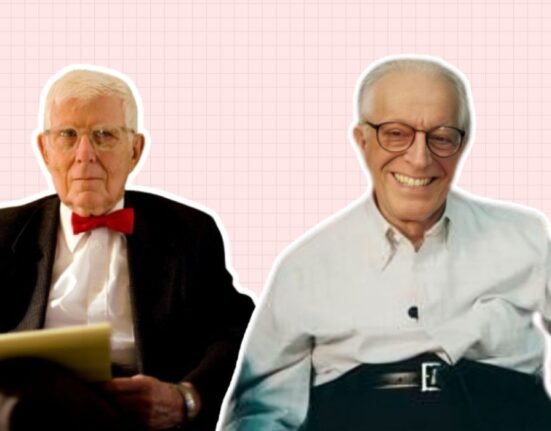You might have come across people, who are misinformed about their competency. For example, an under-confident employee might avoid applying for a promotion, even though they have the qualifications and skills needed for the role. Conversely, a competent employee who’s overconfident may overestimate their abilities. This fascinating situation illustrates the Dunning-Kruger effect, a cognitive bias in which people frequently assume they are the most competent while having the least amount of information or competence.
What is the Dunning-Kruger effect?
This phenomenon is defined as the tendency of people with low ability in a specific area to overestimate their competence in that area. This phenomenon was initially noted in a 1999 study by David Dunning and Justin Kruger, where participants often failed to recognize their inadequacies. As a result, they overestimated their abilities, leading to this cognitive bias, which stems from difficulties in assessing and understanding one’s own cognitive processes. Researchers also include the opposite effect where high performers tend to underestimate their skills.
Read More: Rise and Shine: Young Professional’s Guide to Workplace Confidence
Dunning and Kruger’s experiment
Dunning and Kruger carried out several tests to investigate the connection between perceived and real competence in their groundbreaking study. Their goal was to comprehend how people evaluate their skills across in a range of fields. A closer look into their approach is provided below.
Participants: To take part in their study, the researchers enlisted undergraduate students. This group was selected since it offered a variety of skills and self-evaluations.
Dunning and Kruger focused on various domains where participants’ abilities could be measured objectively and without bias. These included humour, language, and logical thinking. By choosing a variety of domains, they could look into whether the effect held for various skill sets. Test results were compared and They discovered that while people with better exam scores tended to underestimate their performance, those with lower scores continuously overestimated their ability.
Read More: The Psychology Behind Success-Oriented Mindset
Reason Behind the Dunning-Kruger Effect
- Rational Model: This model suggests that overly positive prior beliefs about one’s abilities can lead to distorted self-assessments.
- Lack of Incentive: This external explanation of the Dunning-Kruger effect suggests that participants in studies may not be motivated to provide accurate self-assessments, resulting in inflated evaluations of their abilities.
- Distribution of High and Low Performers: Some argue that when low performers are grouped together, it can be hard for them to accurately assess their abilities compared to others, rather than just lacking self-awareness.
- Self-serving bias: This is the natural tendency to blame external factors like task difficulty or luck for failures and internal factors like talent or effort for wins. Incompetent people tend to blame external factors like luck and divine intervention for failures
- Illusory Superiority and cognitive dissonance: This bias makes individuals believe they are better than others, even when evidence shows otherwise. Cognitive dissonance occurs when people have invested too much in their beliefs about their performance, leading them to defend those beliefs even in the face of contrary evidence.
- Social Comparison Theory: We often assess our skills by comparing ourselves to others. In environments where everyone has similar low experience, this can lead to an overestimation of abilities. For example, in a class of academically struggling students, the average student might believe they are performing well academically.
- Metacognitive Deficits: Metacognitive abilities involve awareness of one’s own knowledge and skills. Individuals with lower knowledge or skill often struggle to recognize what they don’t know, leading to an overestimation of their abilities. This lack of awareness prevents them from accurately assessing their own performance.
- Confirmation Bias: we are inclined to favour information that confirms our preexisting ideology and belief and ignore evidence that contradicts our beliefs. In the Dunning-Kruger effect, Incompetent individuals might selectively remember their successes and forget their failures, reinforcing their inflated self-perception.
Read More: What is Attribute bias? Let’s know about its theories and types
- Statistical and Better-than-Average Effect: This perspective sees the Dunning-Kruger effect as a statistical artifact influenced by factors like regression toward the mean. When individuals with low actual performance are measured, their extreme scores tend to revert to the average, making their self-assessed performance appear higher than it really is.
The majority of people think they drive better than average, yet this isn’t statistically possible for everyone. This phenomenon causes unskilled people to overestimate their talents, which in turn causes the Dunning-Kruger effect. For example, 90% of people believe that They are great at driving regardless of actual performance.
Challenges Competent People Face Due to the Dunning-Kruger Effect
- Underestimation of Their Abilities: these people are more aware of the complexities and the potential for error in their field, this awareness can lead them to believe that tasks are easier for others as well, making them undervalue their own competence.
- Imposter Syndrome: Many competent individuals suffer from imposter syndrome, where they doubt their accomplishments and have a persistent fear of being exposed as a “fraud.” This leads to decreased confidence in one’s ability.
- False Consensus Effect: Skilled people may assume that tasks they find easy are also easy for others.
Read More: Psychologists’ insights on Imposter syndrome and Relationships
Real-life example of the Dunning-Kruger effect
These are real-life examples where the Dunning-Kruger effect can be observed here people overestimated their abilities with serious consequences:
Fyre Festival:
The organizer, Billy McFarland, confidently believed he could successfully execute a large-scale music festival despite lacking the necessary experience and resources. He made exaggerated promises that he ultimately could not fulfill, leading to a disastrous event that left attendees frustrated and investors misled. His overconfidence resulted in significant financial losses, lawsuits, and public backlash.
Theranos Executives:
Elizabeth Holmes, an American entrepreneur, was convicted of fraud after her company, Theranos, made exaggerated claims about its technology with limited experience. She aimed to convince investors and the public that Theranos had revolutionized the medical industry. Holmes and her team perpetuated false claims and misled regulators, leading to exposure by journalists of their inadequate technology. This resulted in legal battles, financial losses, and damaged careers.
Conclusion
In both cases, the leaders’ confidence in their abilities far exceeded their actual competence, highlighting the Dunning-Kruger effect. Awareness regarding the Dunning-Kruger effect is very important as it helps people to evaluate their skills better, and improve them without falling for a variety of different biases, and maintain a healthy self-esteem without an inflated or distorted sense of self.
FAQs
1. What is the Dunning-Kruger effect?
The Dunning-Kruger effect is a cognitive bias where people with fewer skills in a specific feed overestimate their skills, while more skilled individuals underestimate their abilities. lack of metacognitive skills, statistical phenomena like regression toward the mean, and cognitive biases such as the better-than-average effect are the psychology behind this.
2. How does the Dunning-Kruger effect manifest in competent people?
people often underestimate their skills due to detailed knowledge of the complexity of the field, the false consensus effect, and imposter syndrome.
3. Can the Dunning-Kruger effect be measured?
Yes, the Dunning-Kruger effect can be measured through studies that compare individuals’ self-assessments with the test results in a controlled environment.
4. How does the Dunning-Kruger effect impact real-life situations?
Makes you seen as overconfident or unworthy of leadership positions This effect also hinders your chances of improving. This effect is observed in education business sports and personal relationships.
5. What role do metacognition skills play in the Dunning-Kruger effect?
awareness about our thinking though is regarded as metacognition, this includes self-perception. Low metacognitive skills among unskilled individuals prevent them from accurately rating their performance.
References +
- Kruger, Justin; Dunning, David (1999). “Unskilled and Unaware of It: How Difficulties in Recognizing One’s Own Incompetence Lead to Inflated Self-Assessments”.Journal of Personality and Social, Psychology. 77 (6): 1121-1134.CiteSeerX 10.1.1.64.2655 . doi:10.1037/0022-3514.77.6.1121 K. PMID 10626367
- Kruger, J., & Dunning, D. (1999). Unskilled and unaware of it: How difficulties in recognizing one’s own incompetence lead to inflated self-assessments. Journal of Personality and Social Psychology, 77(6), 1121–1134. https://doi.org/10.1037/0022-3514.77.6.1121
- Mazor, Matan; Fleming, Stephen M. (June 2021). “The Dunning–Kruger effect revisited”. Nature Human Behaviour. 5 (6): 677–678. doi:10.1038/s41562-021-01101-z. ISSN 2397-3374. PMID 33833426. S2CID 233191867
- Dunning, David (1 January 2011). “Chapter Five – The Dunning–Kruger Effect: On Being Ignorant of One’s Own Ignorance”. Advances in Experimental Social Psychology. Vol. 44. Academic Press. pp. 247–296. doi:10.1016/B978-0-12-385522-0.00005-6. ISBN 9780123855220.













Leave feedback about this